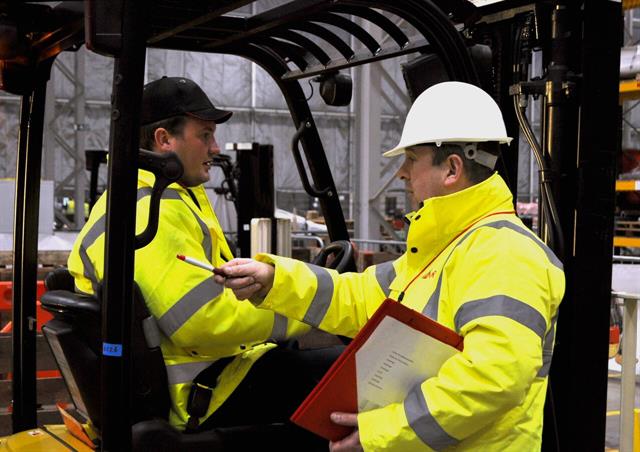 Stuart Taylor |
Stuart Taylor is Managing Director of Mentor FLT Training Limited, the UK's leading provider of training and associated services for all types of materials handling equipment and workplace transport.
As a manager in charge of operations, you'd naturally want new staff to be ready to work as soon as possible. Time is money, after all. You're bringing in someone to do a job because they're needed, and time they spend
not doing that job can feel like time being wasted.
But in their haste to get all hands on deck, many managers rush new forklift operators through the induction process (or skip it entirely), allowing new operators access to equipment before they are fully trained to use it safely.
This increases the risk of an accident, not just for your new operator but for everyone working around them. Accidents involving forklift trucks often have serious consequences, and even when no one is injured, the damage, delays and disruption caused can be detrimental to your productivity and, ultimately, your bottom line.
So, to reduce the risk, what needs to be done before anyone is allowed to operate a forklift truck on your premises?
1. Assess suitability and previous experienceThe best way to confirm operator competence is to check any previous certification or proof of operation and supplement this with an assessment of their current skills.
In the UK, there's no such thing as a forklift licence. Any operator undergoing formal training should receive a certificate demonstrating that they have successfully completed basic training on the specified category of truck.
But beware - not all certificates are as valuable as others. Any training provider can issue a certificate, but to ensure the training carried out meets the standards set by the HSE, you should look for courses accredited by the organisations that make up the Accrediting Bodies Association (ABA), such as AITT or RTITB. If the operator has been trained to this standard but they don't have a copy of their certificate, you can confirm this with the relevant accrediting body.
 It is important to assess operational skills |
The next stage is to assess operational skills. This will help gauge the standard of the operator and determine what training is required before they can safely begin using forklifts on your site. This can be carried out by an external provider or in-house by a qualified, competent person.
Finally, Approved Code of Practice (L117) advises some additional considerations for selecting potential operators, including minimum age, attitude and ability to operate. For details, see L117, paragraphs 49 to 54.
2. Complete all three elements of trainingIt may seem obvious, but you must make sure new operators are fully trained before operating MHE on your premises. It's not about providing the minimum training required to get them out there working - this 'shortcut' can soon lead to costly delays and disruptions, or worse, when they start work at a sub-standard level. Rather, it's about ensuring that all three essential elements of forklift training have been completed, as outlined by the HSE in L117:
"Operator training should always include three stages:
- Basic training: the basic skills and knowledge required to operate a lift truck safely and efficiently.
- Specific job training: knowledge and understanding of the operating principles and controls of the lift truck to be used and how it will be used in their workplace.
- Familiarisation training: applying what has been learnt, under normal working conditions, on the job.
Basic and specific job training, which can be combined, should take place off the job (i.e. away from production and other pressures). Familiarisation training needs to be done on the job, under close supervision."
3. Gain written authorisationOnce you've confirmed the certification and assessment, and after the relevant training has been delivered and completed, the final step is to gain written authorisation from the employer. It should state the operator's name, the date of authorisation, the types and/or categories of truck, and any special considerations, for example, lift height restrictions. Written authorisation needs to be specific to the task to ensure everything stays controlled and within the scope of what was covered during training. No one without authorisation should be allowed access to forklift trucks on your site.
Next time you're keen to put a new forklift operator to work, remember, safe workers are not only less likely to cause accidents, they are also proven to be more productive, so once they do join their colleagues, they'll be able to make a far greater contribution to your operations.